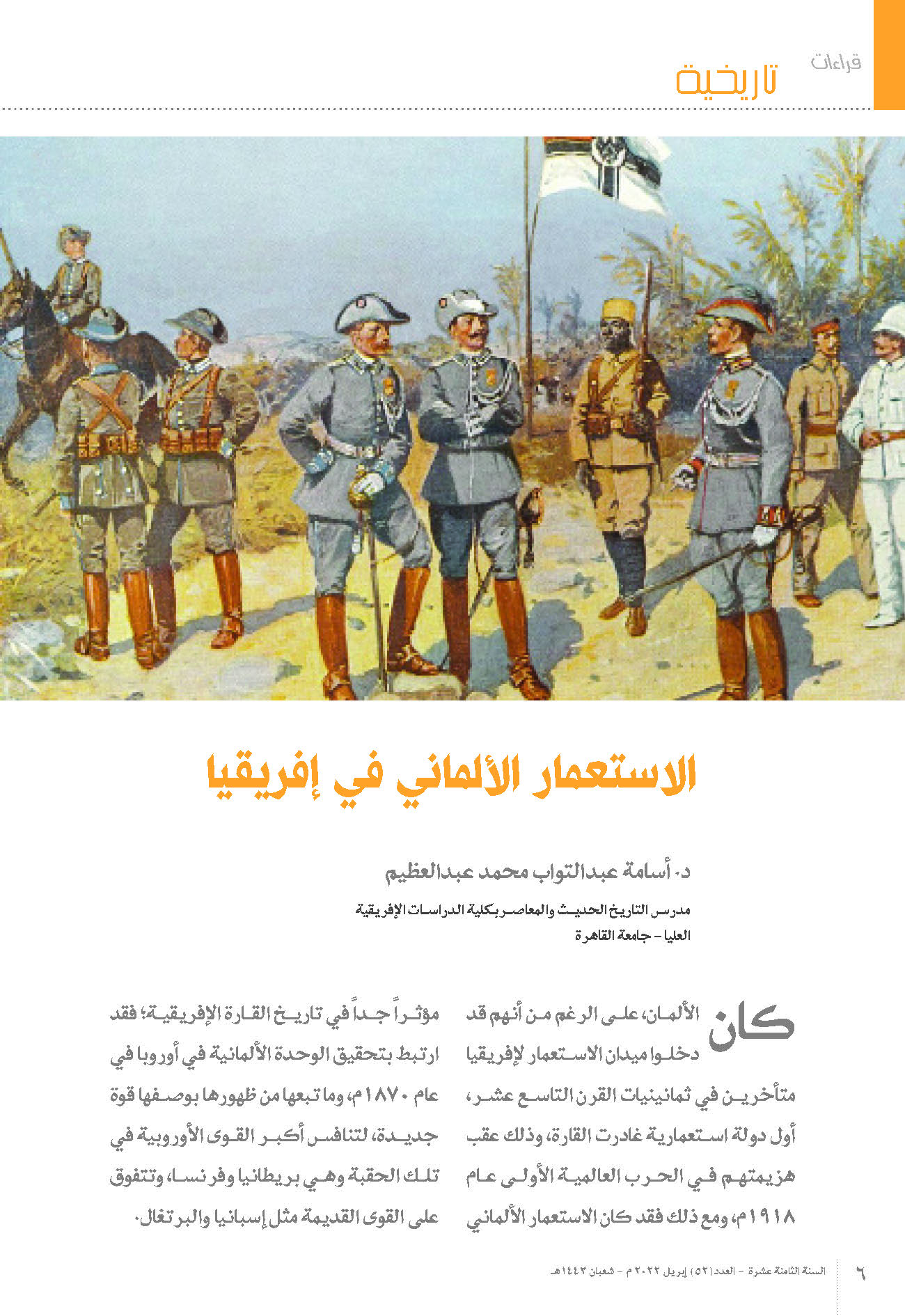Publisher: Qira’at Afriqiyah Magazine
Issue: 52, April 2022
ISSN: 2634-131X
Year : 18
Pages: 6-21
Author: Dr. Osama Abdel Tawab Mohammed Abdel Azim
Download pdf

Abstract:
The Germans, although they had entered the field of colonization of Africa late in the eighties of the nineteenth century, were the first colonial country to leave the continent, after their defeat in the First World War in 1918 AD. Nevertheless, German colonialism was very influential in the history of the African continent; it was linked to the achievement of German unity in Europe in 1870 AD, and its subsequent emergence as a new power, to compete with the largest European powers of that era, Britain and France, and outperform the old powers such as Spain and Portugal. The German presence on the African continent was linked to a delicate and decisive stage in its history. The German chancellor played a major role in rebalancing the European powers, which almost reached a state of conflict. Germany ended up hosting the most dangerous conference that affected the history of the African continent so far, the Berlin Conference of 18841885/ AD, which led to its division. Germany had been able to impose its control over several regions of the African continent in West, Southwest and East Africa, and the economic factor had represented the cornerstone of German policies in Africa; as Germany’s main goal was to create new markets for its products and also to be near the source of raw materials that it was in constant need of in its industrial revolution. These German policies towards the African people created a state of anger towards them, and this led to multiple revolutions against these policies, which formed the basis for all African national movements that worked to liberate the continent from European colonialism after the mid-fifties of the twentieth century.
